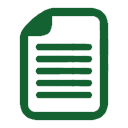Searche
Your search for "patient communication" matched 110 page(s).
Showing results 101 to 110.
 Non-clinical health writing
- Volume 23, Issue
Non-clinical health writing
- Volume 23, Issue
We medical writers have a unique and valuable skill set, which includes, most notably, the ability to understand and clearly communicate complex medical information. We are also experts at working with multifunctional teams, compiling detailed…
 EMWA News
- Volume 25, Issue
EMWA News
- Volume 25, Issue
A lot was going on from April to June this year. Certainly the main event was our spring conference in Munich. Aside the established workshops, Freelance Business Forum, Expert Seminar Series, and updates on Special Interest Groups – it included an…
 Getting Your Foot in the Door
- Volume 25, Issue
Getting Your Foot in the Door
- Volume 25, Issue
Welcome to Getting Your Foot in the Door or GYFD for short, the latest addition to MEW’s regular sections. It all started at the EMWA 2015 autumn meeting in The Hague. Derek Ho met up with the EMWA Executive Committee (EC) to talk about his idea of…
 Writing narrative style literature reviews
- Volume 24, Issue
Writing narrative style literature reviews
- Volume 24, Issue
Reviews provide a synthesis of published literature on a topic and describe its current state-of-art. Reviews in clinical research are thus useful when designing studies or developing practice guidelines. The two standard types of reviews are (a)…
 Plain language and readability
- Volume 24, Issue
Plain language and readability
- Volume 24, Issue
Plain language is writing in clear, concise language that is easy to read and understand. Whenever I hear the term plain language I am reminded of a lay summary I was once asked to edit. The stream of technical language (‘self-source bias’, ‘effect m…
 Time to make it shorter: Plain English in our context
- Volume 24, Issue
Time to make it shorter: Plain English in our context
- Volume 24, Issue
Plain English in medical and scientific writing is not one-size-fits-all, because audiences differ. Advice on writing plain English abounds. In 1946, George Orwell, best known as the author of 1984, formulated a much quoted, compact set of rules for…
 The new PubMed – underestimated regulatory obstacles
- Volume 29, Issue
The new PubMed – underestimated regulatory obstacles
- Volume 29, Issue
NCBI´s PubMed is a powerful literature retrieval tool widely utilised in many areas including science and regulatory affairs. In regulatory affairs, PubMed searches are employed to identify clinical evidence pertinent to product approval…
 A beginner´s guide to writing clinical investigation plans and reports for medical devices
- Volume 31, Issue
A beginner´s guide to writing clinical investigation plans and reports for medical devices
- Volume 31, Issue
A clinical investigation plan for a medical device must outline and justify all objectives of the clinical investigation, present and justify the investigational design and methodology, and state principal features of the statistical analysis. A…
 An introduction to little-known aspects of nonclinical regulatory writing
- Volume 26, Issue
An introduction to little-known aspects of nonclinical regulatory writing
- Volume 26, Issue
Nonclinical evaluation is a key component of drug development. Traditionally, scientists have prepared much of the written regulatory documentation, with dedicated nonclinical writing being a niche profession. This is changing – the demand for…
 Instructions for Authors
Instructions for Authors
Instructions for Authors SCOPE Medical Writing, the official journal of EMWA (the European Medical Writers Association), is a quarterly journal that aims to educate, inform, and entertain medical writers. Medical Writing publishes themed issues…
Search
Links
Scope
Medical Writing is a quarterly publication that aims to educate and inform medical writers in Europe and beyond. Each issue focuses on a specific theme, and all issues include feature articles and regular columns on topics relevant to the practice of medical writing. We welcome articles providing practical advice to medical writers; guidelines and reviews/summaries/updates of guidelines published elsewhere; original research; opinion pieces; interviews; and review articles.
Medical Writing is listed in the following indexes:
Editoral Board
Editor-in-Chief
Co-Editors
Managing Editor
Victoria White
Associate Editors
Section Editors
AI/Automation
Biotechnology
Digital Communication
EMWA News
Gained in Translation
Getting Your Foot in the Door
Good Writing Practice
In the Bookstores
Publications
Medical Communications/Writing for Patients
Medical Devices
My First Medical Writing
News from the EMA
Freelancing
Pharmacovigilance
Regulatory Matters
Regulatory Public Disclosure
Teaching Medical Writing
Louisa Ludwig-Begall / Sarah Kabani
The Crofter: Sustainable Communications
Veterinary Writing
Editors Emeritus
Layout Designer
Chris Monk
 Visit the EMWA website
Visit the EMWA website




